Directed by Joko Anwar, the Netflix supernatural horror movie, ‘Grave Torture,’ revolves around a woman named Sita who loses her parents due to a suicide bombing in her childhood. Looking to make sense of the man’s motivations, Sita and her brother end up questioning the very foundation of religion itself and whether the concept of divine torture exists. The protagonist’s persistence to know the truth leads her on a quest to find the most sinful person on planet Earth and prove once and for all that the concept of grave torture is nothing but a lie fabricated by religious fearmongers.
However, by the film’s end, Sita’s beliefs change as she witnesses dark rituals that peek into the other side. Anarchy breaks out in the broader population as reports of grave torture begin flooding through people’s social media. Meanwhile, Sita and her brother are plagued by horrifying memories from their past, in particular, the Islamic boarding school they attended after their parents’ death. The movie’s conclusion leaves the viewers with questions regarding the fate of the brother and sister and whether they make it out of their ordeal alive! SPOILERS AHEAD.
Grave Torture Plot Synopsis
Sita and Adil are the children of bakery owners Sanjaya Arif and Mutia Kirana. With the launch of several franchise food stores in the neighborhood, the family’s bakery has been struggling with tough times. Sita and Adil are worried that their parents might have to shut down the business soon and send them away to a boarding school. One morning, a stranger enters the shop and gifts Adil an audio cassette, espousing that everyone must follow the teachings of Allah, before leaving the shop’s premises. He also warns Adil not to leave the shop. When a robbery occurs inside the shop, Sita and Adil’s parents chase the robbers outside, which is when a bomb blast in the neighboring building claims their lives.
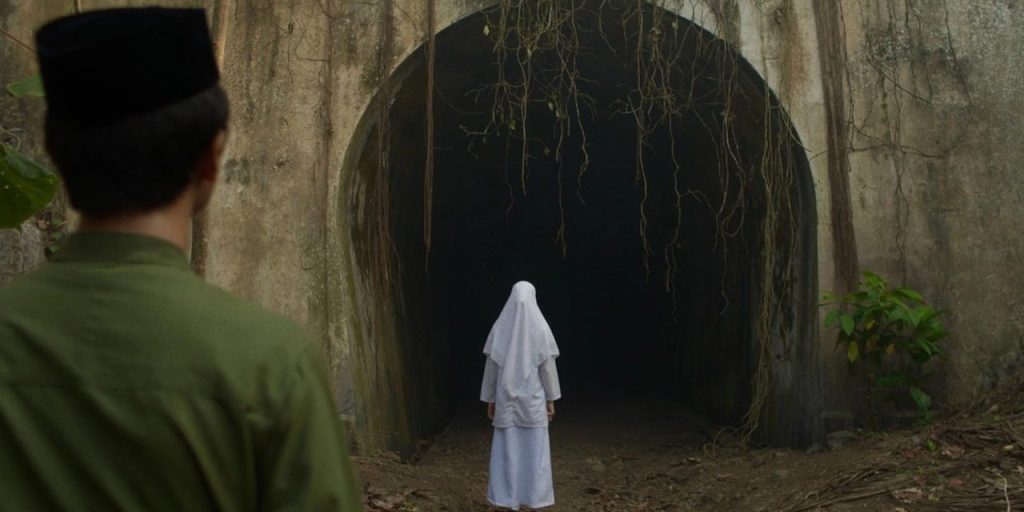
The two orphaned kids are taken in by an Islamic boarding school in a village. There, a skeptical Sita questions the beliefs of the Quran taught to the students, specifically about grave torture—the punishment suffered by sinners in the afterlife. In his cassette, the suicide bomber had purported to confirm the truth behind grave torture, an event that had scared him into dying in the name of his religion. Sita wishes to prove that no such thing exists in real life and that the so-called artificial construct of religion above everything is to blame for her parent’s death. She tries escaping the boarding school with her brother through a secret tunnel in the woods. However, the pair get separated, and Sita runs into a mysterious young boy named Ismail, who frightens her into returning to the institution.
One night, Sita learns from a conversation between a couple of teachers that the school’s owner, Mr. Ilham Sutisna, wishes to use her brother for a nefarious purpose of his own. The young girl also learns that the man has been doing this to other students for several years, including a boy named Ismail, who died. After running to her brother’s aid, Sita finds him taken away by an unseen man while he shouts for help. She can do nothing but return to her room. Thankfully, her teacher, Umaya, helps her escape the room, gifting her a bag and sending her on her way. That night, Sita finds her shell-shocked brother in a car in the woods. She persuades him to follow her into the tunnel, and the two escape into a new life beyond.
Years later, Sita works at a nursing home for elderly citizens while her brother, Adil, works as a mortician at a funeral home nearby. Sita is searching for the most sinful person in the world as she wishes to jump in the grave with them and find out if the notion of grave torture is truly a reality. Her search has led her to one of the nursing home’s inhabitants, Mr. Wahyu Sutama, a decrepit rich man who has a soft spot for Sita. The nurse knows the truth behind Sutama’s real identity and the type of person he is, which makes her certain that once he dies, there is no way he will escape divine punishment if it were to exist. All she needs to do is wait for him to die before she can finally find the truth that has haunted her all her life.
Grave Torture Ending: Why Does Sita Believe Wahyu is the Worst Sinner?
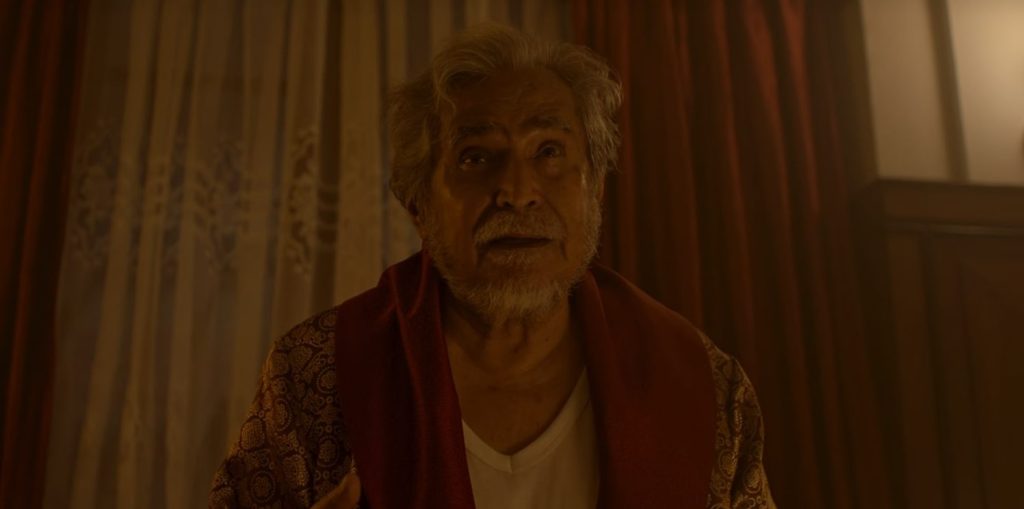
After leaving the boarding school, Sita becomes obsessed with disproving the reality of grave torture. She believes it is a fabricated lie by religious folk to seed fear in people and control them—a notion that becomes even more pervasive after she ends up losing her parents because of a suicide bombing. Therefore, she begins a search for the most sinful person, believing that such an individual has no chance of escaping the divine justice of an all-powerful and all-seeing god. That’s when she lands upon the doorstep of Mr. Wahyu Sutama, a wealthy man living in a nursing home who is hiding under a false identity. Wahyu’s real name is Mr. Ilham Sutisna, the owner of the boarding school Sita and Adil attended when they were younger. The man was responsible for raping Adil the night the siblings escaped.
When Adil learns the truth accidentally during a visit to the nursing home, he tries to kill Wahyu himself, but Sita orders him not to. Subsequently, the two watch in terror with the rest of the nursing home’s population as the child rapist shoots himself through the back of his mouth using a revolver. In reality, Wahyu had raped around 50 children in his Islamic boarding school, a secret practice that some of the teachers in the school knew about. Thus, it is beyond a shred of doubt for Sita that if anyone deserves the horrifying punishment of grave torture, it has to be Wahyu. However, the night she jumps into the grave with him, she notices that nothing of the sort takes place, which proves what she believed in all along – that grave torture is not real.
What Does Sita See in Wahyu’s Grave?
At the film’s end, a desperate Sita is stunned by the discoveries of other common folk that prove grave torture is a real phenomenon. As widespread panic breaks out among the city’s population, Sita rushes to the cemetery and digs up Wahyu’s grave. However, upon entering it, she finds herself in a mysterious tunnel that leads her through numerous locations in her past, including the tunnel at her boarding school. She runs into Ismail again and is terrified by his ghostly visage. She also sees her brother as he performs the final rites on other dead bodies. Eventually, she comes upon her parent’s bakery, where her mother and father wave her goodbye, causing her to break down in tears. After being chased by an apparition of Wahyu, Sita wakes up next to his dead body lying in the grave.
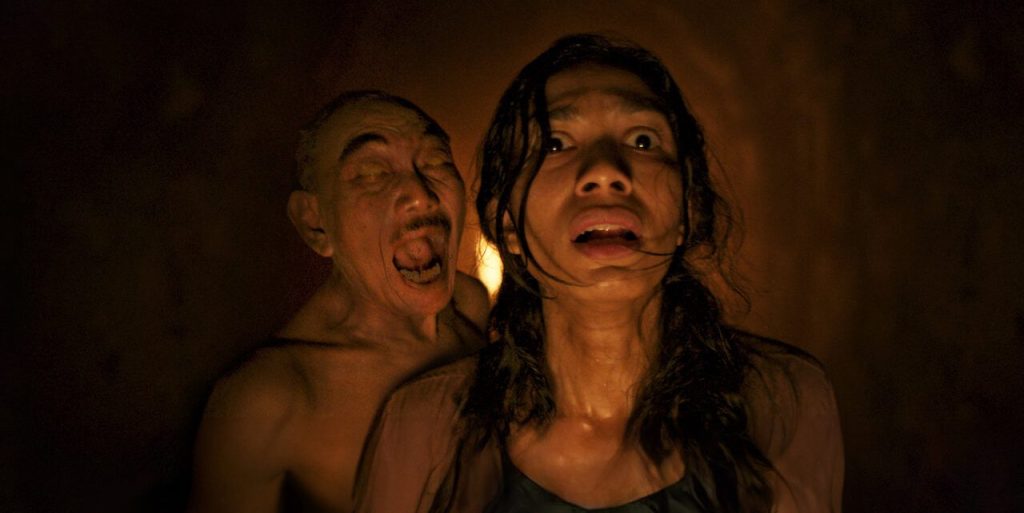
Sita’s worst nightmares come to fruition when she witnesses Wahyu’s body being tortured in horrifying ways next to her. She records it on her camera and weeps while repenting for being a non-believer thus far. As Wahyu’s mutilation continues next to her, the protagonist finally transitions from her previously held stance of an agnostic to a woman whose faith is restored, albeit through a horrifying demonstration. It challenges everything she has built her identity around following her parent’s death. In fact, her trip through Wahyu’s grave teaches her to reconcile the surreal and mystical side of life with the logical and rational perspective she had fostered as a consequence of her loss.
Therefore, her journey into Wahyu’s grave can be viewed as a metaphorical trek through hell itself, a notion that is talked about in the film. While her primary goal is to find the objective truth behind grave torture and its reality, Sita realizes that she has ignored her subjective perception of things around her. Her anxiety and determination to have her worldview reflected back is met with a sense of opposition from within herself. It is only upon accepting that her reasons for being a non-believer are rooted in her parent’s loss and her denial that Sita’s mind opens up to the possibilities that exist outside of it. Therefore, despite the terrifying torture scenes at the end of the film, it is an eye-opening moment for the protagonist.
Who Says “Man Rabbuka” to Sita and Adil? What Happens to the Siblings?
After watching Wahyu’s torment on her camera, Sita is rescued from the collapsing grave by her brother Adil. The older sibling fishes Sita out of the ground, and the two seemingly make a hasty escape. As Sita wraps her tired brother’s hands around her and begins walking away, a mysterious voice shouts at Sita—”Man Rabbuka,” translating to “Who is your god?”—which causes the protagonist to turn her head and gasp in surprise. However, the film cuts away before any conclusion is provided to the enigmatic scenario. Although the ambiguity is part of the movie’s chilling ending, the pitch and tone of the voice suggest that it comes from the black demonic creature that tortures Wahyu to death. The story exposits it to be the angels Munkar and Nakir, who also visit Sita in a previous scene.
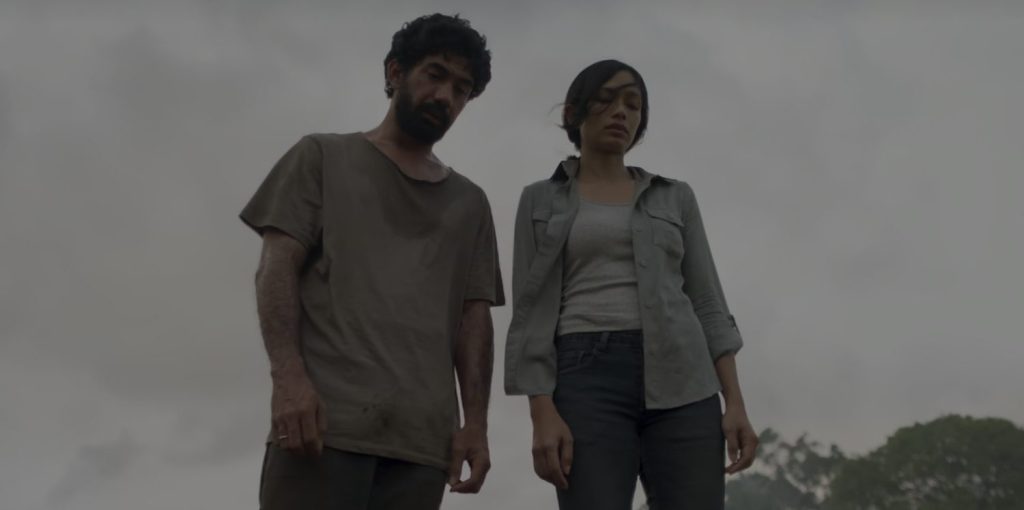
Although the reasons for the angels appearing in front of Sita may not be concretely stated, their question, “Who is your god?” along with Sita’s shocked expression, hints that the brother and sister duo may be in trouble. As Sita has been a non-believer for most of the narrative, it is likely that her doubts have caused her to become a sinner herself, meaning that it puts her in the crossfire of Munkar and Nakir. Incidentally, she also screams for repentance during Wahyu’s torture, signifying that she is, in part, guilty of her actions. Thus, the possible appearance of the two dark angels at the film’s end could suggest that the siblings may not have achieved a fairy tale ending despite the countless tragedies they have suffered.
Additionally, the film’s final scene suggests another major turn of events. In the end, viewers are given a glimpse of Mrs. Pandi’s wedding ring, indicating that she and her husband are alive and together. Previously, Mrs. Pandi had been depicted to have died after she tragically got involved in an accident in the nursing home’s laundry room. However, the movie’s ending seems to hint otherwise, which pushes the theory that Sita and Adil were both long dead before the events of the final scene. Therefore, it makes sense that as the two siblings try to escape the cemetery, they hear the words of the angels, which prompts that they are the next to be tortured. If that is the case, it is a gruesome ending for the brother and sister duo, who seem to have fallen on the wrong side of the moral scale.
Read More: Grave Torture: Is the Netflix Movie Inspired By a True Story?

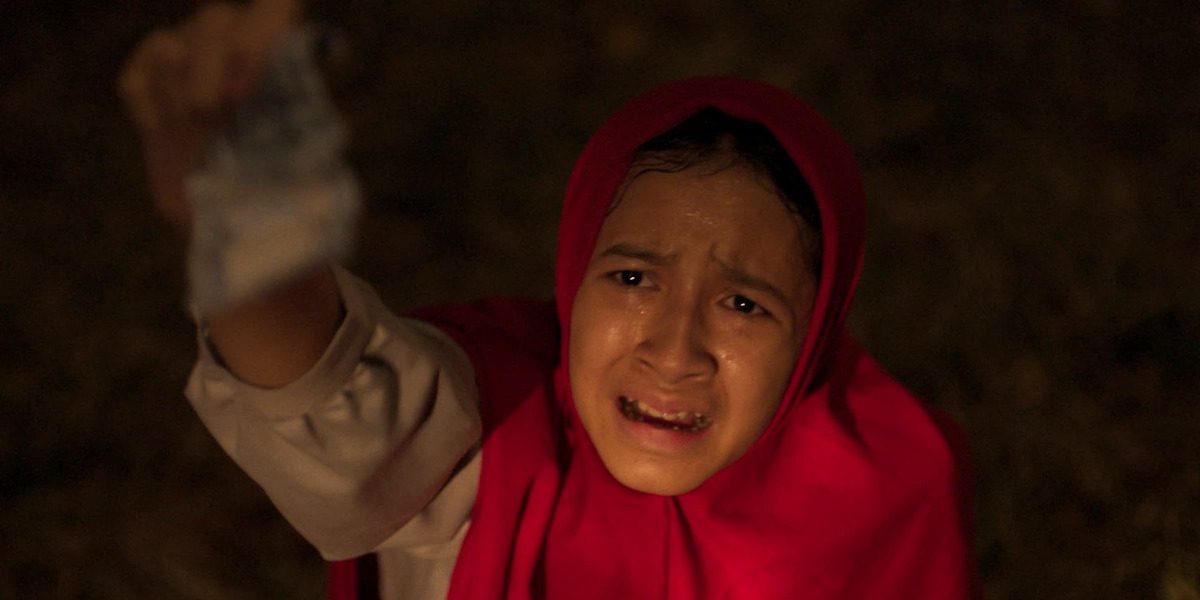
You must be logged in to post a comment.